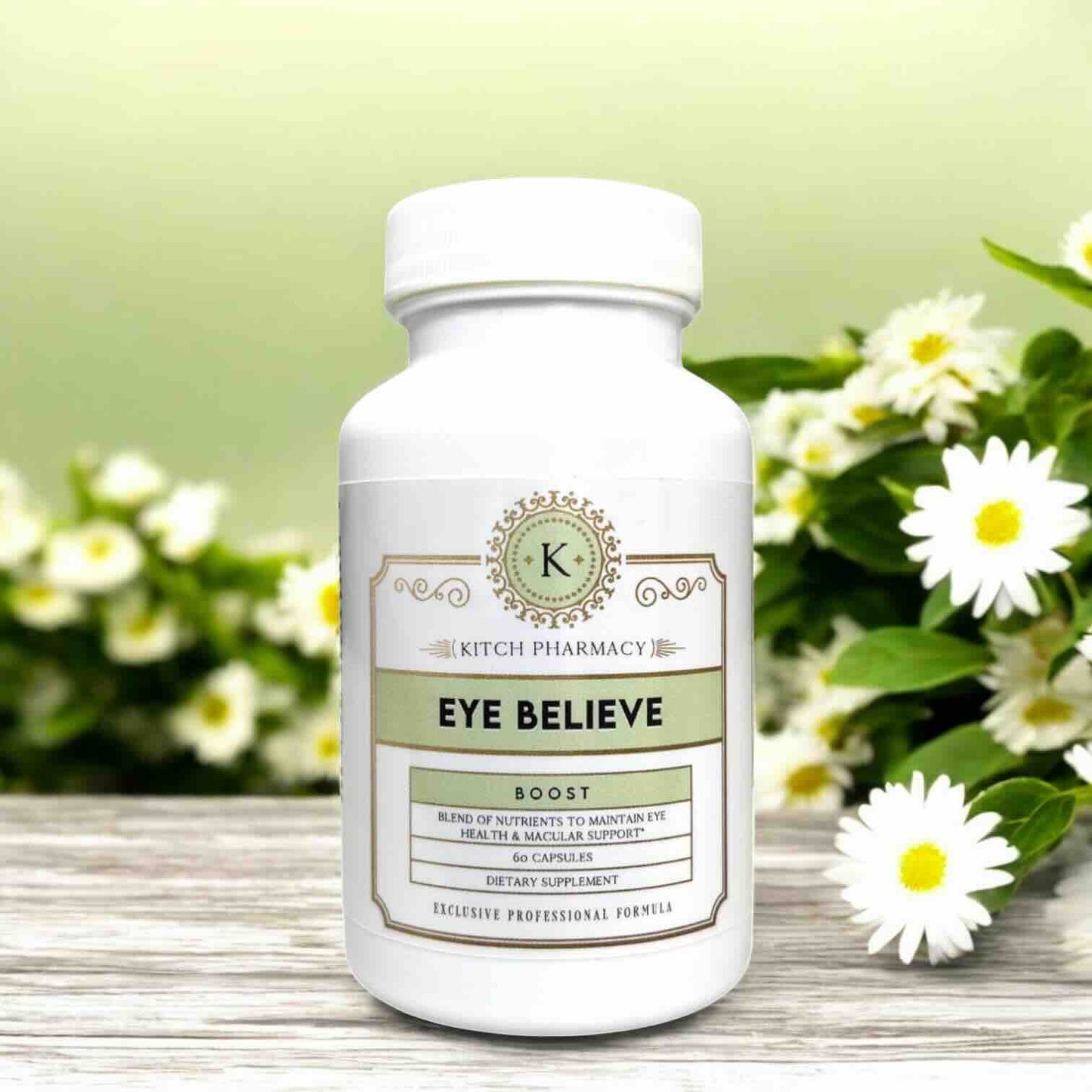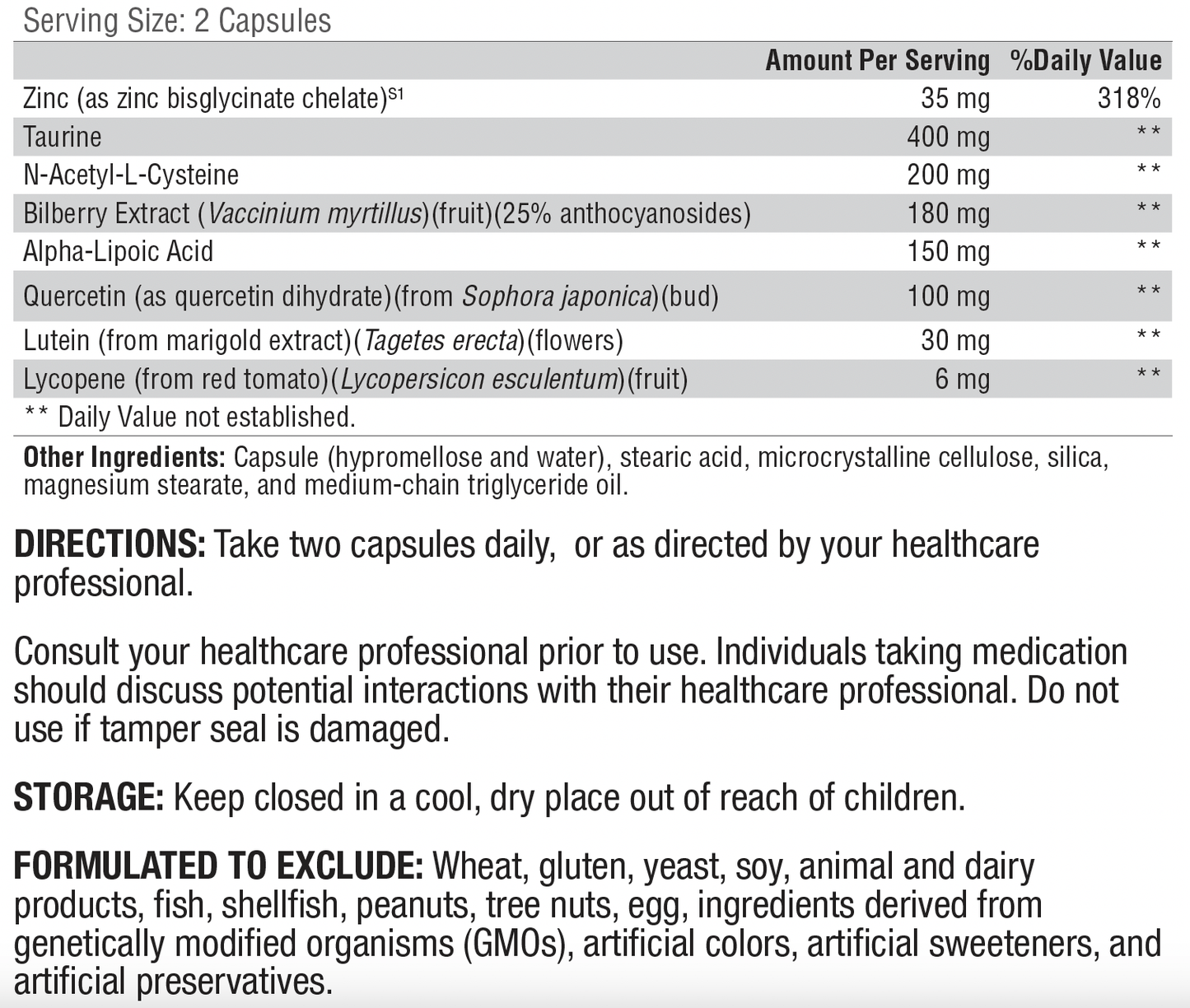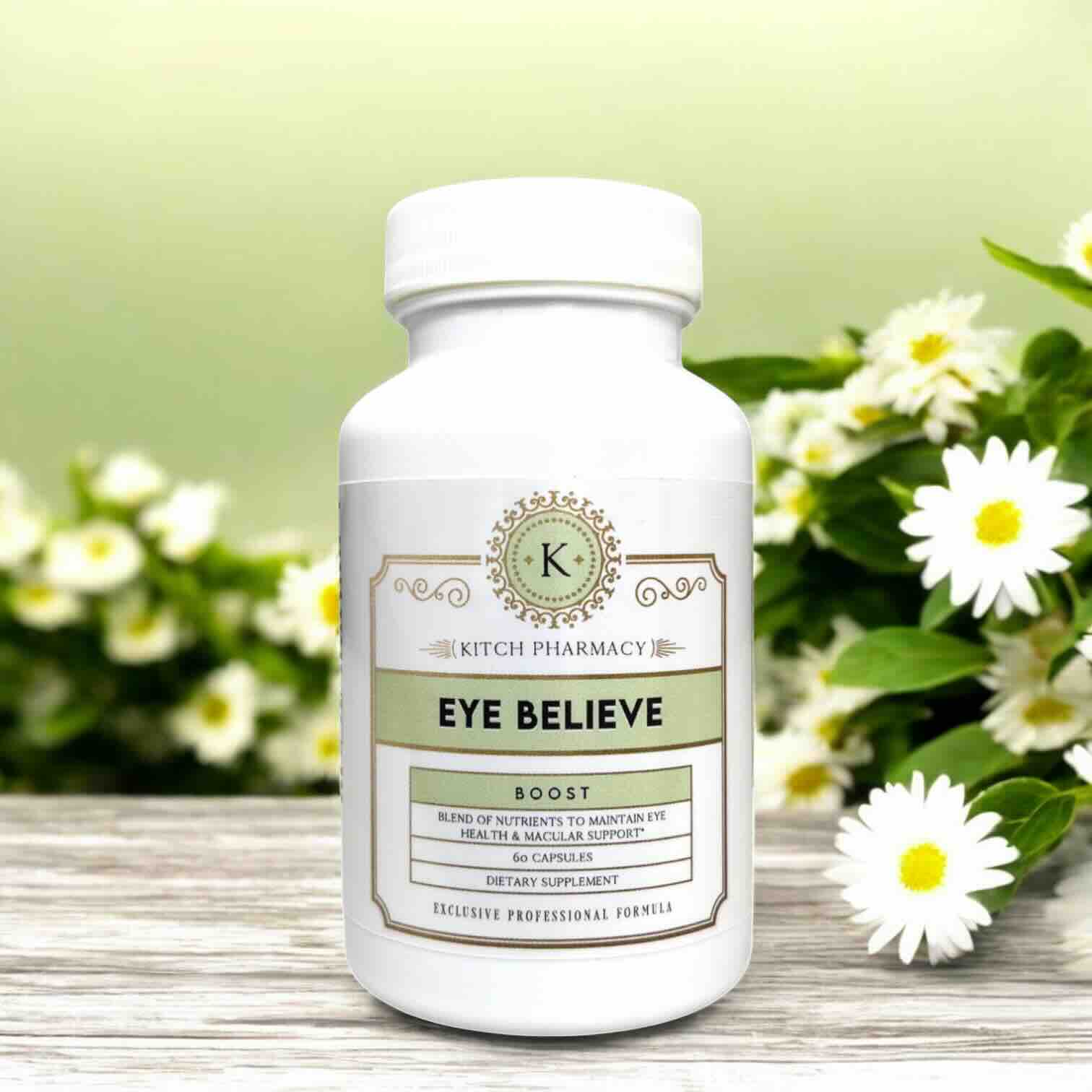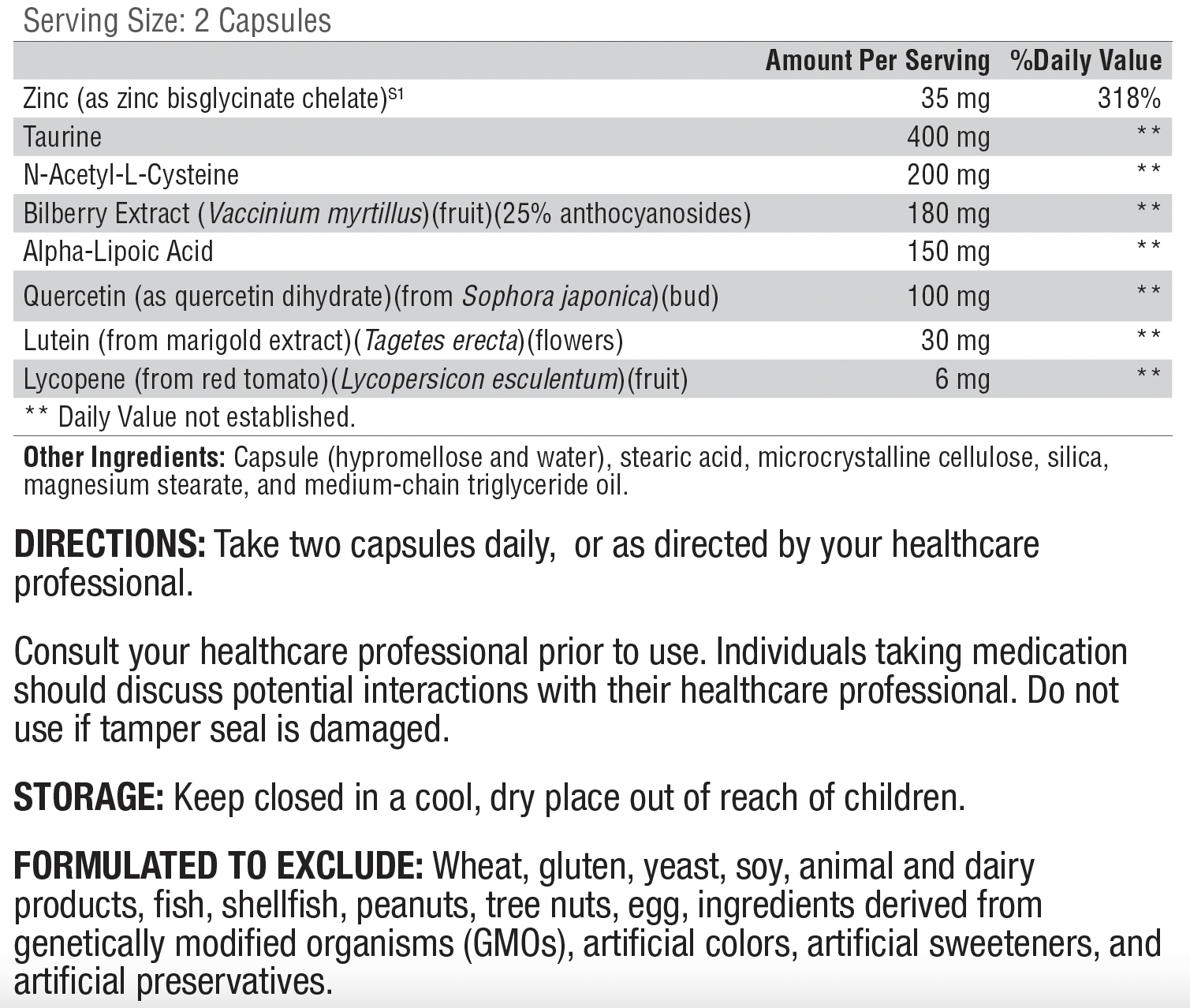Eye Believe (Eye Health Supplement)
Eye Believe (Eye Health Supplement)
Kitch Pharmacy
Couldn't load pickup availability
✓ May Support Macula, Retina, and Lens from Oxidative Damage *
✓ Contains carotenoids and flavonoids *
✓ Includes antioxidant nutrient blend *
*These statements have not been evaluated by the Food and Drug Administration. This product is not intended to diagnose, treat, cure, or prevent any disease.
Share


Collapsible content
Product Details
Eye Believe is a pharmacist-formulated supplement that combines a curated blend of carotenoids, flavonoids, and antioxidants in a convenient daily capsule. This formula provides a balanced source of nutrients derived from plant-based and supportive compounds that may help maintain overall nutritional wellness as part of a balanced routine.
*These statements have not been evaluated by the Food and Drug Administration. This product is not intended to diagnose, treat, cure, or prevent any disease.
Ingredient Information
Each serving of Eye Believe consists of two capsules, with 30 servings per container. Each serving provides 35 mg of zinc (as zinc bisglycinate chelate), supplying 318% of the Daily Value. It also includes 400 mg of taurine, 200 mg of N-acetyl-L-cysteine, 180 mg of bilberry extract (Vaccinium myrtillus fruit) standardized to 25% anthocyanosides, 150 mg of alpha-lipoic acid, and 100 mg of quercetin (as quercetin dihydrate from Sophora japonica buds). Each serving further provides 30 mg of lutein (from marigold extract, Tagetes erecta flowers) and 6 mg of lycopene (from red tomato, Lycopersicon esculentum fruit). Daily Values for some ingredients have not been established.
Suggested Use: Take two capsules daily or as directed by your healthcare practitioner.
Does Not Contain: Milk, eggs, fish, shellfish, tree nuts, peanuts, wheat, or soy.
Other Ingredients: Capsule (hypromellose and water), stearic acid, microcrystalline cellulose, silica, magnesium stearate, and medium-chain triglyceride oil.
Storage: Keep tightly closed in a cool, dry place out of reach of children.
TRAACS® is a registered trademark of Albion Laboratories.
About Kitch Pharmacy Products

Wellness Served Daily
At Kitch Pharmacy Products, we are dedicated to providing top-quality vitamins and supplements formulated to help support your overall wellness. These products are crafted in Good Manufacturing Practice (GMP) compliant facilities, ensuring that every step of the production process meets rigorous quality and safety standards. Additionally, our partners prioritize third-party testing to verify the purity, potency, and quality of their supplements, giving you confidence in the products you choose. By selecting Kitch Pharmacy Products, you are investing in premium, professionally formulated supplements created with your wellness in mind. *
* These statements have not been evaluated by the Food and Drug Administration. This product is not intended to diagnose, treat, cure, or prevent any disease.

Everyone Has A Seat At Our Table

Just as a kitchen is a gathering space, our pharmacy is a gathering space to get answers to all your questions related to medication, supplementation, and holistic wellness. In this coming together, we are helping to build the communities we serve, and we take the role of being a trusted partner in community health very seriously. That means we are stocked with products that complement prescription care and provide supportive options for wellness at every age and stage of life.*
* These statements have not been evaluated by the Food and Drug Administration. This product is not intended to diagnose, treat, cure, or prevent any disease.



